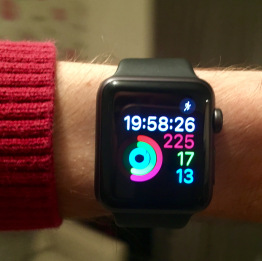
Finally, it’s here – a smartwatch that has it’s own cellular connection and so doesn’t require you have your phone with for it key functionality to work – while also not looking like an ASBO tag.
I’m impressed that Apple were able to cram this new functionality into a watch that’s almost the same size as the previous generation. The ability to go out for a run, to a gig or to the pub for the evening and leave your phone at home is a game changer. Being able to listen to music, get directions, take calls and respond to calls without anything on your person is something I imagine to be a very freeing experience. It’s still early days, and I expect the new watch to have significantly worse battery life when the cellular connection is used. Just as the current generation suffers when you use the GPS and heart rate monitoring functionaries, the new models will see less battery life if you use them away from your iPhone a lot of the time. In two or three years time however, when battery and processor efficiency has improved even more, these watches will be capable of replacing our phones for many of their core uses. Will people want to replace their phones though? No camera, no web browser, no games. I doubt it. Having the option though, can be only a good thing. If you can leave your phone at home more and more often, you might even consider a bigger phone, or just having a tablet-sized device instead of a phone. Or perhaps we’ll just pull down out Apple Glasses when we need a bigger screen.
So will I be upgrading to the Series 3? In short, no. I bought an Apple Watch last year, and I’m going to make it last.⌚️